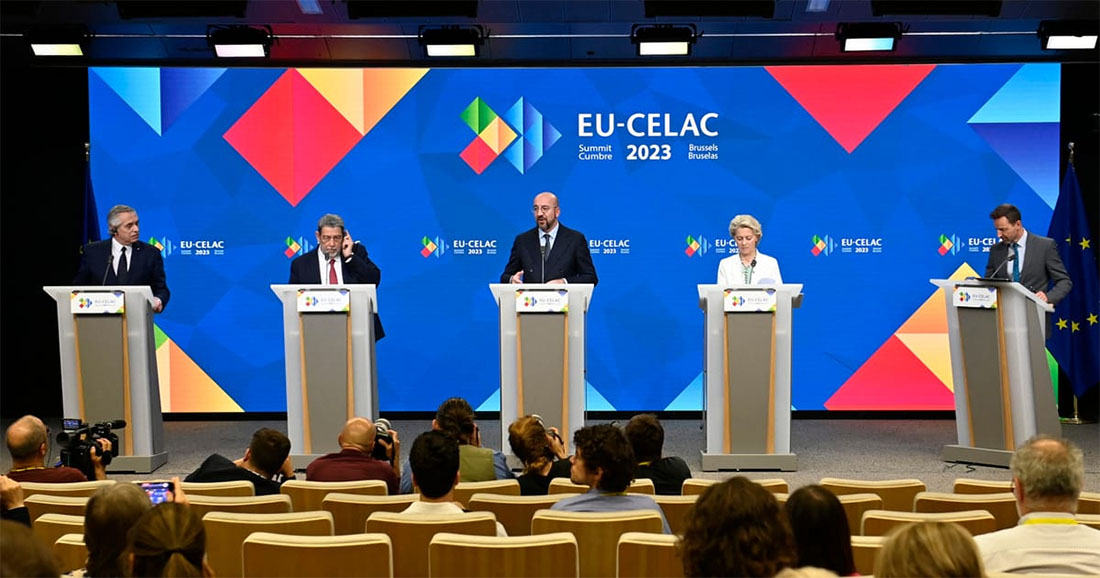
Photo Credit: Getty Images
Brazil, Argentina, Uruguay and Paraguay are hoping to announce a blockbuster trade deal with the European Union at a regional summit Friday after a push by Brussels to get the long-delayed accord over the line. The deal between the 27-nation EU and the four founding members of South America's Mercosur bloc would create the world's biggest free trade zone. But it has been dogged by resistance by France -- especially its famously militant farmers, who fear it would bring unfair competition.
The European Commission, which determines trade policy for the whole EU, has launched a renewed push to definitively seal the deal. Germany and Spain in particular are pushing for a swift completion of the pact, which would bring benefits to Brazilian beef producers and German car manufacturers, among others.
Brazil's left-wing President Luiz Inacio Lula da Silva, whose country dominates Mercosur, is also pushing for the deal to be finalized.
The European Commission, however, has not announced any plans for its chief, Ursula Von der Leyen, to travel to the summit. Her task of navigating resistance to the deal was made more difficult last week when Poland, another of Europe's big farming nations alongside France, also came out against it as bad for "Polish farmers and food security." They need to forge a blocking minority of at least four countries representing 35 percent of the EU's population to prevent the trade deal from happening.
South American farmers accuse them of protectionism.
The EU and Mercosur states reached a draft deal in principle in 2019, after two decades of negotiations, but it was never ratified due to EU concerns about the climate policies of the far-right Brazilian president Jair Bolsonaro. Uruguay's Foreign Minister Omar Paganini has called the Mercosur summit a "critical moment" in the negotiations on a "historic" accord. The accord would gradually reduce tariffs and quotas on trade between the EU and the four founding Mercosur countries, which together count more than 740 million people, and a combined GDP of $21.3 trillion, according to the World Bank.
EU leaders in favor say Europe needs to get the deal done to secure new markets in Latin America in the face of growing competition from China, and to compensate for potential US tariff hikes when Donald Trump returns to the White House.
















